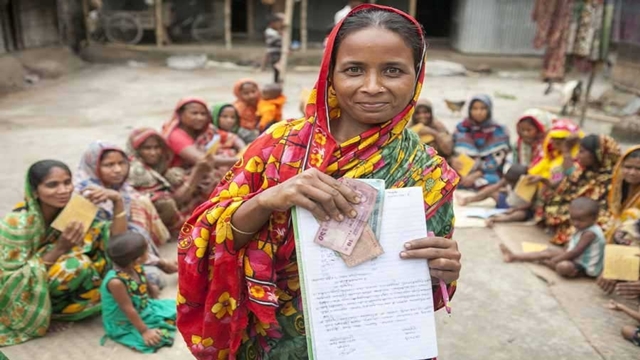FT Online
Published:2019-09-07 20:53:23 BdST
MF-CIB to check micro loan applications, charge fees
From now on, loan applications of the country's micro borrowers will be examined by the Microfinance Credit Information Bureau (MF-CIB), according to the entity's draft guideline.
The MF-CIB may also charge fees for the service from the country's non-government organisations (NGOs) and microfinance institutions (MFIs), which provide microcredit to borrowers, the guideline mentioned.
The draft guideline will be kept online until September 09 seeking public opinion.
The MF-CIB will be situated at the Bangladesh Bank (BB), and the central bank is developing software for the entity.
The UK's Department for International Development (DFID) is helping the government to implement the project concerned.
Among others, the MF-CIB will be responsible for collecting, processing and maintaining an updated database of credit-related information, supplied by the participating institutions (NGOs-MFIs).
One of the objectives behind setting up the MF-CIB is to minimise the extent of overlapping loans by providing timely reports on credit information, based on enquiry/request about loans.
However, the CIB authority will not disclose client information of an NGO-MFI to another.
The Credit Development Forum (CDF), a forum of the country's MFIs, has welcomed the move.
Executive Director of the CDF Abdul Awal said setting up a CIB for microfinance sector has long been overdue.
It will contain overlapping of loans, and reduce dropout rate of microcredit borrowers, he added.
According to the industry insiders, the country's NGOs-MFIs have 26 million members-clients at present. But, a large number of them are taking loans from more than one organisation.
There is no record of such overlapped clients due to lack of an automated record keeping system or database, they added.
Mosharraf Hossain, director (finance) of the BURO Bangladesh - a national NGO, said the MF-CIB will be an extension of the BB-CIB.
He was a member of the committee that formulated the draft guideline.
Mr Hossain further said the MF-CIB will help to improve living standards of the poor people by increasing their income, and thus contribute to the country's economic growth.
The CIB will reduce transaction cost for both borrowers and lenders as well as bring down demand for funds.
However, the non-automated NGOs-MFIs cannot take facilities from the CIB, he noted.
The Grameen Bank (GB) will not be able to take the CIB's services, as it has been formed under a separate act.
"The GB should grab the opportunity of taking the CIB's services on its own initiative," he added.
Unauthorized use or reproduction of The Finance Today content for commercial purposes is strictly prohibited.


